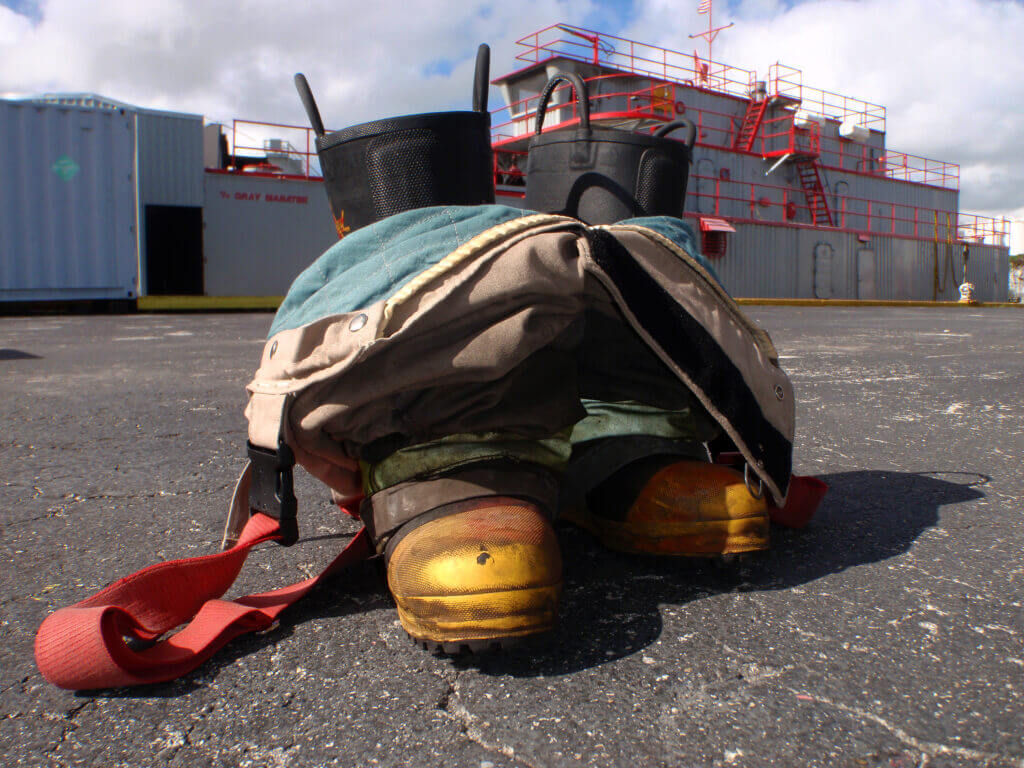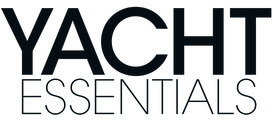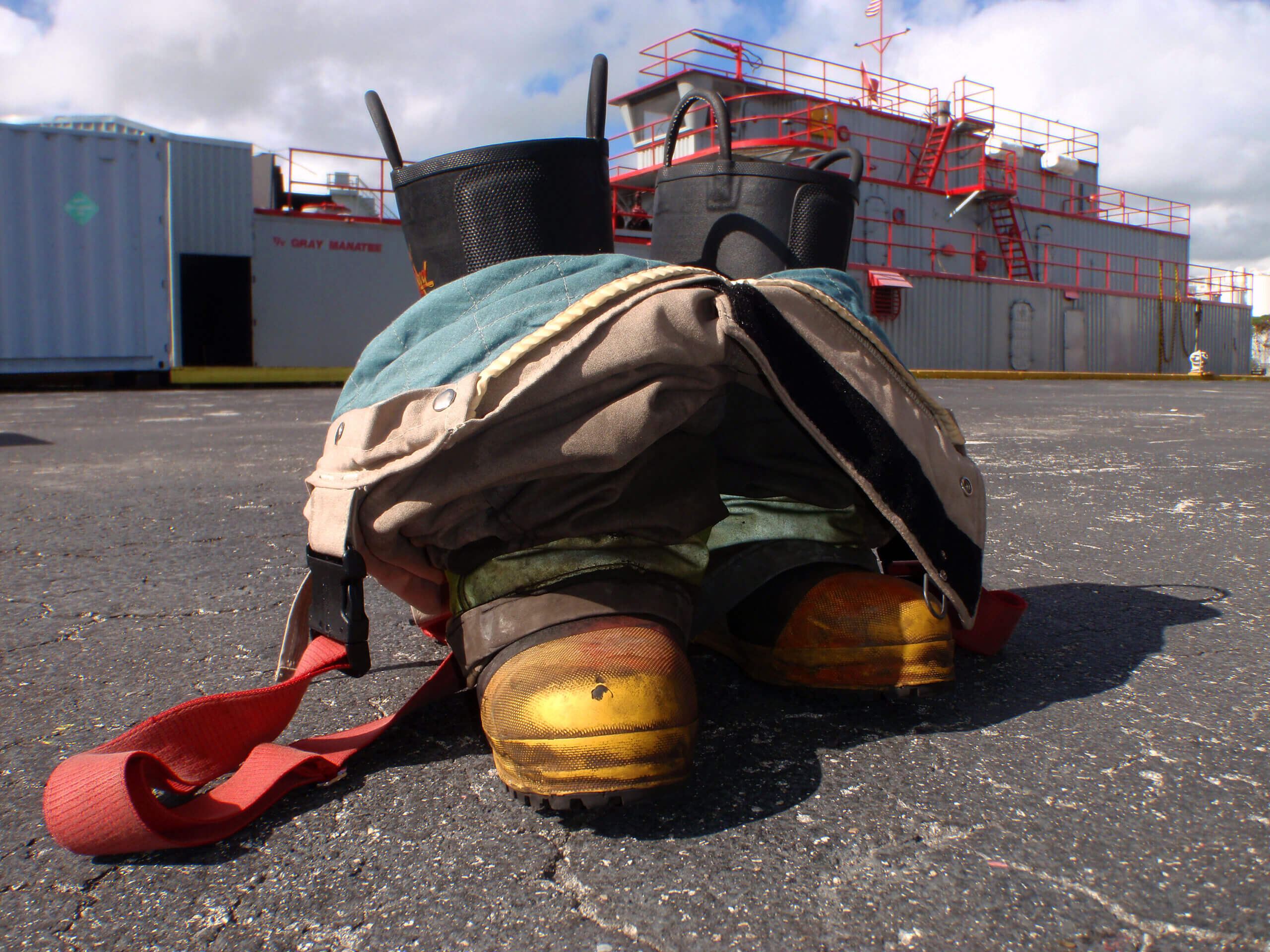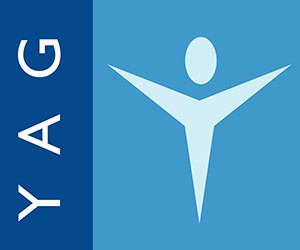Somewhere in the middle of battling a helicopter fuel spill fire, dragging an unconscious young girl to safety from a pitch black, smoke-filled cabin, and treading water with five other crew members while telling them all what to do next to stay calm and survive, I realized that this wasn’t your average educational experience. Unless of course, you work in yachting.
While these precarious scenarios were only simulated, the elements involved were very real and the serious notion of what they would be like if faced outside of the classroom was not lost on me or my fellow classmates during a couple of recent trips back to school. Advanced Sea Survival and Advanced Fire Fighting are two recent courses out of a stack I’ve been enrolled in, and while some of the content may seem like overkill for the size or type of boat you may be or hope to be working on, the emphasis on safety and being prepared for the worst makes them more valuable than just another addition to the resume.

Of course, that is all very easy for me to say from where I stand. I’ve recently been promoted and am extremely fortunate to have a generous employer who strongly believes in education and safety — hence the heavy course load that began in December and continues right through to April. It’s a load of new certifications that my boat pays for in return for longevity. But if I was typing this into a computer plugged into a crew house wall while on the job hunt, rather than the yacht I call home, I might be singing a different tune about the value of a few thousand dollars, especially since some of the courses needed to push forward in this industry seem to spur a general sense of disappointment after a few days of review in a classroom and a very expensive piece of paper with your name on it, rather than a new wealth of new knowledge and hands-on experience. Slapping down a couple of weeks of your own rent and food money feels a lot better when the return is more than some ink on paper.
So, again, I know how fortunate I am. Actually, how fortunate our entire crew is, as I’m not the only one benefitting from our boss’ offer to pay for the total cost of the courses if the “students” stay on board for at least a year. It would be crazy not to. However, I also think it’s a deal where everybody wins. Obviously, the more we know as crew to do our jobs well and to be prepared for any situation is a big advantage now and for the future; I also believe that, for the owners, it’s a way to retain crew they know and trust and believe will make the right decisions if an emergency situation ever did arise. I think it makes a lot of sense for both parties, but of course, every boat is different and the spectrum of opinions on how best to spend money may be pretty wide between yacht crew and yacht owner. If it isn’t in practice, suggesting to the boss to send the qualified crew they’ve already hired back to school at their expense may not be the most effective plan, but hopefully with more awareness being made on the mutual benefits of continued learning and the incentive for crew to stay put, that will become less and less necessary.
The good news is that judging by what I’ve heard from friends on other boats and colleagues in the industry, getting these courses and certifications paid for is a fairly common practice by yacht owners as long as you’re eager to learn and are willing to stick around for a while. One look at a vessel fire or collision in the news and it’s hard to debate the value in that investment. When playing the odds of dealing with an emergency at sea, it’s just a smart move to stack your decks with more educated, competent and confident crew.
So, as 2012 has taken hold and I’ve readied myself to balance a full schedule of studying and work that will rule the next few months, it occurs to me that not a lot of other industries provide such an accommodating environment for progress and success. After all, we work, live and study all in the same place. We have a lot of the resources and equipment available to us all the time when we need practice or experience, so getting in some extra classroom hours becomes a lot simpler.
If you are fortunate enough to be on a boat that offers more education, being sent to school without having to take time off and remaining employed can eliminate a lot of stress, as can learning more about a job that you hopefully already love. And most of all, gaining more education that benefits the others around you as much as yourself is a positive step for everyone. Whether it’s a Medical First Aid or OOW Navigation and Radar course like I have coming up to better prepare me for my new position — or one of the many others aimed at improving skills, broadening knowledge and increasing confidence — everyone should hit the classroom once and a while, so navigating the waters outside them is safe and fun for everyone.



